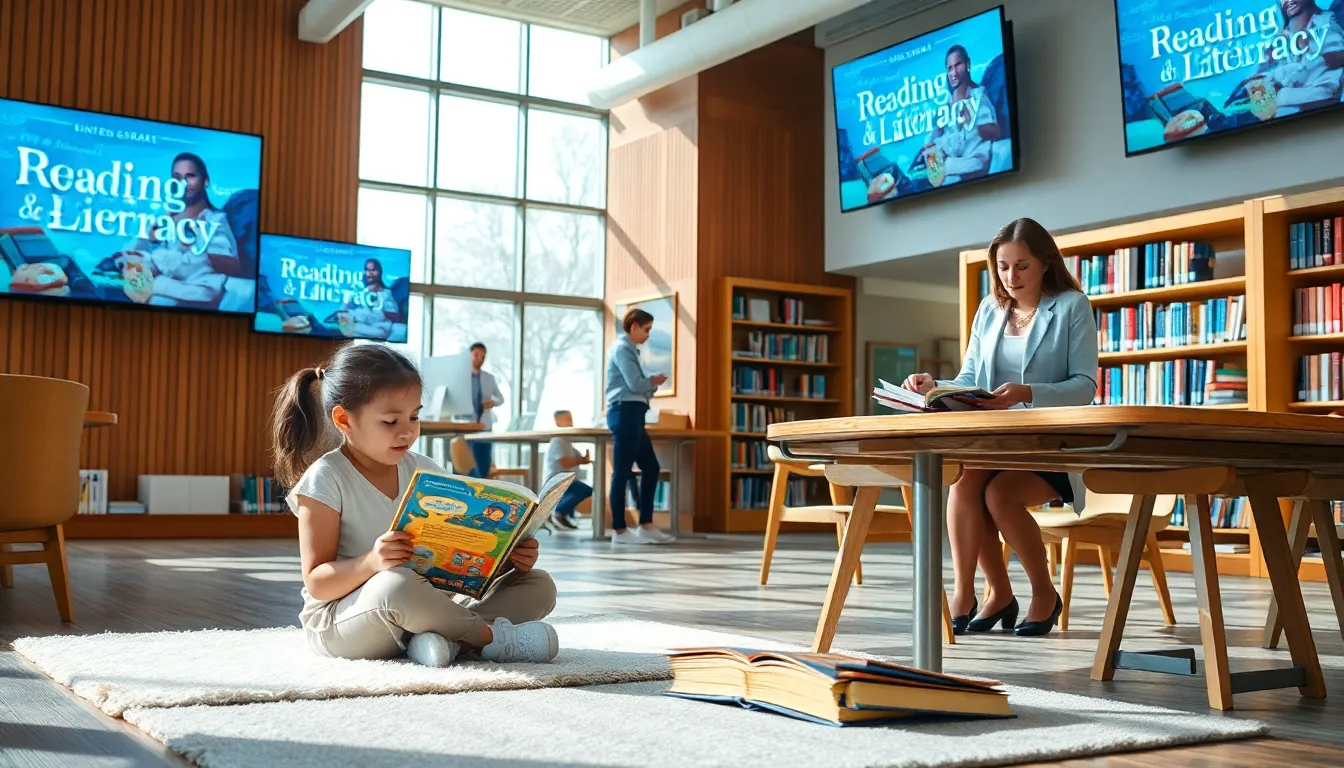Imagine a world where venturing into a book opens the door to endless possibilities. Sounds awesome, right? Reading isn’t just something to pass the time, it’s a passport to personal development. Whether unlocking cognitive secrets or forming emotional bonds, reading has a profound impact on our lives. In this text, we’ll explore why reading matters, how it shapes our lives, and how communities can foster a love for literacy that lasts a lifetime.
Table of Contents
ToggleThe Importance Of Reading In Personal Development

Reading is often hailed as a fundamental skill, but its significance goes well beyond simply recognizing words on a page. Engaging with literature fosters personal growth and opens a treasure trove of cognitive and emotional benefits.
Cognitive Benefits Of Reading
Studies have shown that reading can enhance brain connectivity and improve overall cognitive function. It’s not just about picking up vocabulary: individuals can sharpen their analytical skills, develop critical thinking abilities, and boost their memory. A good book has the magic to transport readers to different worlds while stimulating their minds. Each page turned is like a mini workout for the brain, packing a punch of knowledge and creativity.
Emotional And Social Growth Through Literacy
Also, reading has incredible emotional benefits. When people jump into the lives of characters, they often encounter diverse perspectives, which helps cultivate empathy. This emotional intelligence is vital for forming meaningful relationships and navigating social situations. Those who read frequently often exhibit better emotional regulation, understanding their feelings and the feelings of others far better than non-readers. It’s a win-win for personal development and social skills.
Understanding Different Genres And Their Impact
Literature offers a myriad of genres, each capable of stirring unique interests and emotional responses. Understanding these differences can help readers appreciate reading even more.
Fostering A Love For Reading In Children
Introducing children to various genres is vital. A well-curated reading list can ignite their enthusiasm and curiosity. From whimsical fairy tales to gripping adventures, engaging diverse narratives can keep children glued to books. Crafting interesting reading challenges or simply visiting the library together can also breed a lasting love for literature. The goal is to make the joy of reading accessible and exciting.
Creating A Reading-Friendly Environment
At home or in educational settings, creating a nurturing reading environment is crucial. Cozy nooks filled with colorful books make reading more inviting. Parents and teachers can encourage discussions about stories, sparking curiosity in young readers. The more comfortable children feel about picking up a book, the more likely they are to make reading a habit.
Developing Literacy Skills Beyond The Classroom
In today’s fast-paced digital world, literacy goes beyond the pages of classic novels or textbooks. Mastering reading encompasses understanding information in various formats.
Digital Literacy In The Modern Age
Digital literacy has become essential. With the vast sea of information available online, discerning credible sources needs the same critical reading skills honed through traditional reading. Engaging with articles, e-books, and interactive stories with visual elements can create a balanced approach toward literacy. By immersing oneself in various formats, a reader not only enhances their skills but also adapts to contemporary learning styles.
Encouraging Lifelong Learning Through Reading
One of the most significant gifts reading can give is the realization that learning doesn’t stop after formal education. Rather, it sets the stage for lifelong learning.
Strategies For Improving Reading Habits
Developing effective reading habits is a lifelong task. Setting daily reading goals, trying new genres, and joining book clubs can help maintain enthusiasm. Making reading a routine part of one’s day, even if just for 15 minutes, goes a long way. Also, incorporating reading materials aligned with personal interests can make the practice more enjoyable. Engaged readers often find themselves exploring new avenues of knowledge, and continuing education becomes second nature.
Community Initiatives That Promote Literacy
Communities play a pivotal role in cultivating a reading culture. Various initiatives aim to improve literacy rates, ensuring everyone has access to the benefits of reading.
From local libraries hosting reading hours to community centers offering literacy programs, there are valuable resources available. Book donation drives can provide students with much-needed literature while mentoring programs connect volunteers with young learners. Such initiatives foster a culture where literacy is viewed as a communal value. By rallying together, communities can create an ever-expanding network of support for those seeking to enhance their reading skills.






